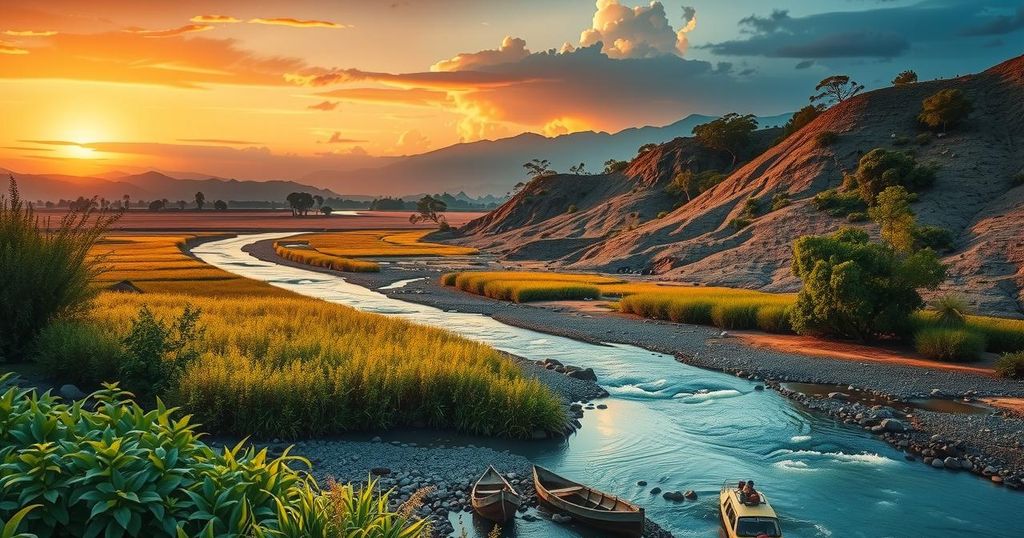The Wayuu people in northern Colombia are increasingly affected by severe droughts and floods, leading to food insecurity and displacement. Many families lack basic utilities and face health risks from waterborne diseases. Community leaders emphasize the need for support amidst climate change challenges. Despite these struggles, the Wayuu demonstrate resilience and continue to forge their identity while navigating tension between their traditional lands and current living conditions.
Indigenous migrants in northern Colombia, particularly the Wayuu people, are grappling with escalating climate impacts such as severe droughts and flooding. In La Guajira, these environmental challenges have led to food insecurity, displacement, and community hardships. Many Wayuu families lack access to basic utilities like running water and electricity, with the most affected being those who fled Venezuela’s economic crisis. Their relationship with the land transcends national borders, as they have historically inhabited areas in both Colombia and Venezuela.
Nelly Mengual, a 47-year-old Wayuu resident, recounts her harrowing experiences with extreme weather. Severe flooding recently destroyed her makeshift home, leaving her belongings ruined. Ingrid Gonzalez, a community leader, emphasizes the vulnerability of traditional Wayuu homes during the rainy season due to their construction materials. Samuel Lanao, the head of Corpoguajira, warns of growing health risks from diseases like dengue and Zika, stemming from climate-induced conditions that devastate agricultural and homesteading practices in the region.
Climate change manifests distinctly in La Guajira, as reported by professionals like Camilo Martinez from the Danish Refugee Council, who indicates shifts in weather patterns and temperature anomalies. Documented by the Colombian Institute of Hydrology, evidence includes irregular rainfall and temperature increases, which have profound effects on the local population’s ability to sustain themselves.
The challenges of heat and drought are extreme, as Gonzalez noted the intense conditions experienced last year leading to adverse health effects in residents and animals alike. The Wayuu people often depend on unreliable water sources, with many purchasing untreated water for their daily needs, further complicating their living conditions. Local NGOs frequently aid these communities where governmental support is lacking, addressing issues exacerbated by climate events.
Wayuu leader Anibal Mercado highlights the impacts of climate change on migrant populations, noting their involvement in recycling as an unexpected form of survival due to governmental neglect. Despite the adversities, members of the Wayuu community, such as Laura Pushaina, persist in their traditional crafts to sustain their families while expressing hope for a return to their homes in Venezuela, despite current instability.
In summary, the Wayuu people in northern Colombia face daunting challenges linked to climate change. The dual threats of drought and flooding exacerbate their existing struggles, compelling them to adapt amid dire circumstances. Their resilience, however, shines through their attempts to rebuild and sustain community ties despite these ongoing hardships. The situation calls for immediate awareness and action to enhance their living conditions and protect their traditional rights amidst the changing climate.
The situation of the Wayuu people in northern Colombia exemplifies the severe impacts of climate change, manifesting through droughts and floods that threaten their livelihood and wellbeing. Despite their resilience, these Indigenous migrants face heightened food insecurity, health risks, and inadequate infrastructure. Comprehensive support and sustainable policies are paramount to safeguard their rights, enhance their living conditions, and preserve their rich cultural heritage. The dual crises of migration and climate change necessitate urgent intervention to foster a more secure future for the Wayuu community.
Original Source: www.independent.co.uk






